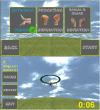Gamified Neurorehabilitation Strategies for Post-stroke Motor Recovery: Challenges and Advantages
- PMID: 35278172
- PMCID: PMC8917333
- DOI: 10.1007/s11910-022-01181-y
Gamified Neurorehabilitation Strategies for Post-stroke Motor Recovery: Challenges and Advantages
Abstract
Purpose of review: Stroke is the leading cause of permanent motor disability in the United States (US), but there has been little progress in developing novel, effective strategies for treating post-stroke motor deficits. The past decade has seen the rapid development of many promising, gamified neurorehabilitation technologies; however, clinical adoption remains limited. The purpose of this review is to evaluate the recent literature surrounding the adoption and use of gamification in neurorehabilitation after stroke.
Recent findings: Gamification of neurorehabilitation protocols is both feasible and effective. Deployment strategies and scalability need to be addressed with more rigor. Relationship between engaged time on task and rehabilitation outcomes should be explored further as it may create benefits beyond repetitive movement. As gamification becomes a more common and feasible way of delivering exercise-based therapies, additional benefits of gamification are emerging. In spite of this, questions still exist about scalability and widespread clinical adoption.
Keywords: Neurological rehabilitation; Stroke; Stroke rehabilitation; Video games; Virtual reality.
© 2022. The Author(s), under exclusive licence to Springer Science+Business Media, LLC, part of Springer Nature.
Conflict of interest statement
The authors declare no competing interests.
Figures


References
-
- Benjamin EJ, Blaha MJ, Chiuve SE, Cushman M, Das SR, Deo R, et al. Heart Disease and Stroke Statistics—2017 update: a report from the American Heart Association. Circulation [Internet]. 2017 [cited 2020 Aug 11];135. Available from: https://www.ahajournals.org/doi/10.1161/CIR.0000000000000485. - DOI - PMC - PubMed
-
- Pollock A, Baer G, Campbell P, Choo PL, Forster A, Morris J, et al. Physical rehabilitation approaches for the recovery of function and mobility following stroke. Cochrane Stroke Group, editor. Cochrane Database Syst Rev [Internet]. 2014 [cited 2020 Aug 11]; Available from: http://doi.wiley.com/10.1002/14651858.CD001920.pub3. - DOI - PMC - PubMed
-
- Rosamond W, Flegal K, Furie K, Go A, Greenlund K, et al. Heart disease and stroke statistics—2008 update. Circulation. 2008;117:e25–146. - PubMed
Publication types
MeSH terms
LinkOut - more resources
Full Text Sources
Medical
Research Materials
Miscellaneous

